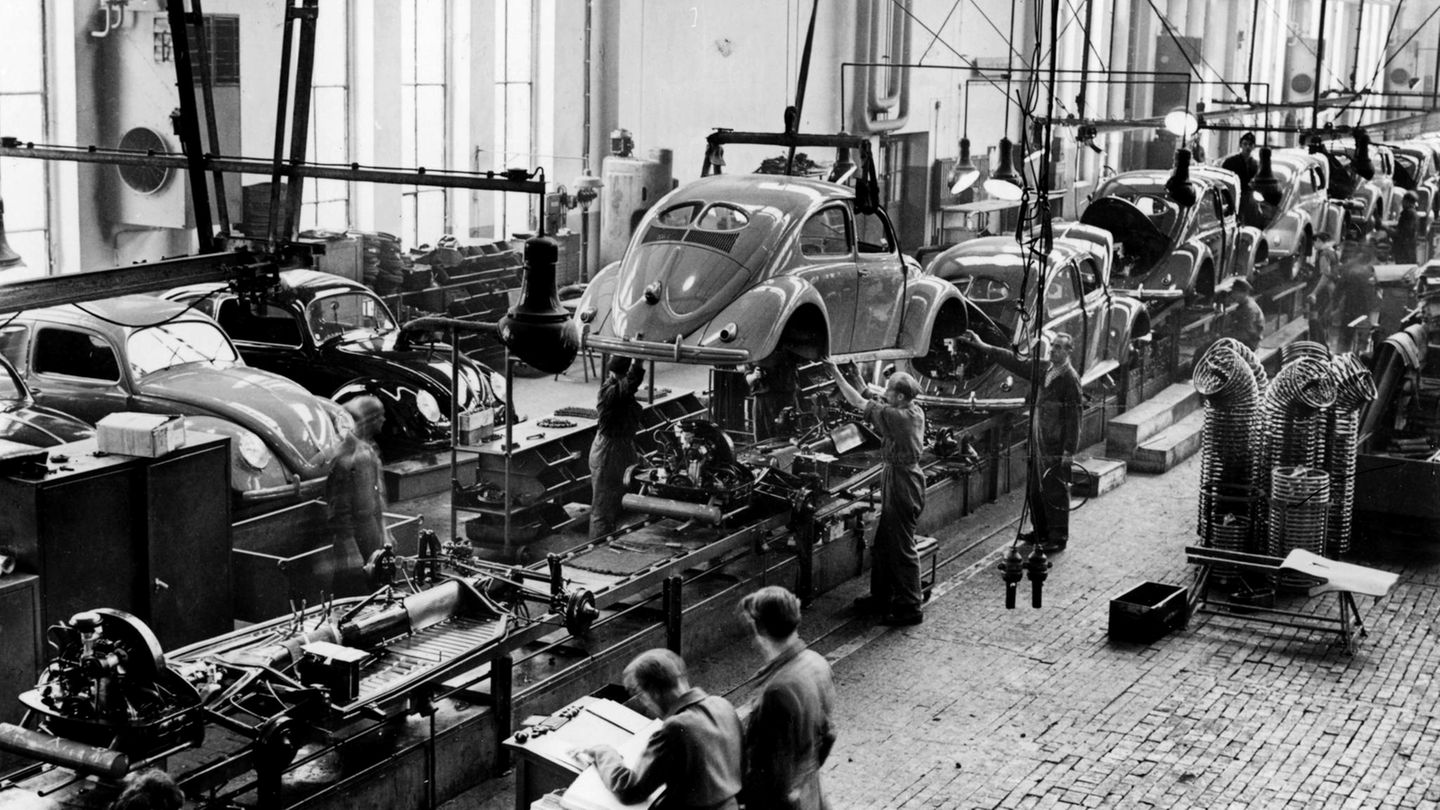After the war, people only worked eight hours a day – but consistently six days a week. The economy was booming. But the desire for a 5-day week grew louder.
After the Second World War, the signs quickly pointed to an upswing in Germany: industry really got going again from 1950. And that had an impact on the workers. 1 or two years later, 48 hours a week – and sometimes even more. Overtime was scrubbed especially in production, at the carmakers or in the steelworks. The Allies had set the eight-hour day. But that for a working week with six working days. Only Sunday was free.
At first, that was fine for the workers. They wanted to make money. In times of economic boom, the unions advocate higher wages – and pushed through the demands. It was also politically wanted: Better to earn a bit more than to toil less, that was the motto of Ludwig Erhardt, the “father of the economic miracle”. But as the population grew more prosperous, calls for more free time became louder. Because the upswing in the country was physically tough. Coal mining, steelworks, automobiles – the foundation stone for Germany’s reputation as an export nation was laid with hard physical work, noise, dirt and maloche. And Germany produced on a large scale.
Unions are calling for a 40-hour week
40 hours with full wages, that was the union’s demand. For the demonstrations on May 1, 1954, the posters show a small child and the slogan: “Saturdays, Daddy is mine”. But this wish also aroused critics. The “Sorge” expressed: Sure, a free Saturday would be a nice gift for many, but also a curse for many. Most people live on the run from themselves anyway. A lack of a working day would not be a blessing for them, it would increase the emptiness. And the desolate flatness with which most waste their free time would become even more evident. ”
Probably a colossal misjudgment, because in fact people initially – after the end of the war – threw themselves into work. “The surprisingly rapid rise of the German economy from rubble and ashes, which showed itself in sudden increases in production figures and mass incomes from year to year and which is now also visible in almost frightening balance of payments surpluses, is anything but a miracle, but the result the most real fact that we work can. There are even more voices claiming that in recent years we have done too much of a good thing in this regard and that over the hasty rebuilding of our outer facade we have forgotten something else even Part of happiness in life – that this economic miracle, seen in the long run, has cost us dearly. “Just Malochen? No, that’s no longer enough. People want to spend the weekends in the allotment garden, finally travel, time with spend with the family.
In fact, as early as 1959, it was the coal miners who received the five-day week with full wages. In 1960 insurance employees were given reduced weekly working hours, a year later the bankers.
And: In the end, the shorter working hours even benefit the economy – because the free time boosts private consumption. Play and sports equipment, garden tools and new furniture for the home, and even a car for the many excursions, ensure further economic growth.
Jane Stock is a technology author, who has written for 24 Hours World. She writes about the latest in technology news and trends, and is always on the lookout for new and innovative ways to improve his audience’s experience.




